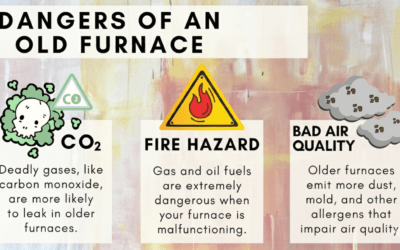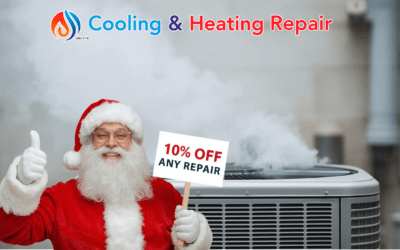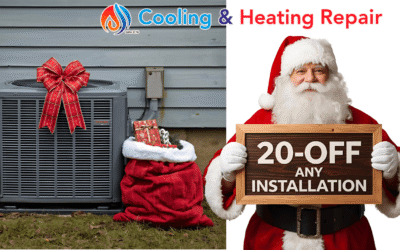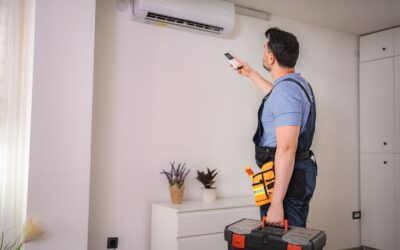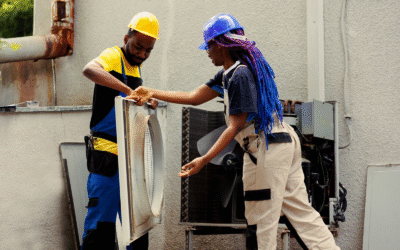The Ultimate Guide to Understanding HVAC Services for Your Home

The ultimate guide to understanding HVAC services for your home begins with one essential truth: your heating, ventilation, and air conditioning system is the backbone of indoor comfort. From maintaining consistent temperatures to enhancing air quality and lowering energy costs, HVAC systems play a crucial role in everyday life. By exploring the many aspects of professional HVAC Services—from installation and repairs to maintenance and upgrades—you’ll gain the knowledge needed to make smart choices for your home.
Types of Systems Offered Through HVAC Services
When you request HVAC Services, you’re engaging with a wide range of systems—each built to serve different home needs. Understanding the unique functions of these options helps you select the right balance of comfort, efficiency, and cost.
Central Air Systems
Central air delivers cooled or heated air through a system of ducts, providing consistent whole-home comfort. It’s one of the most common systems for modern homes thanks to its ability to regulate temperatures evenly in every room.
Ductless Mini-Splits
These systems enable zoned temperature control without ductwork, making them ideal for additions, older homes, or areas where duct installation is impractical. Each indoor unit can be controlled independently, giving homeowners flexibility and energy savings.
Heat Pumps
Heat pumps provide both heating and cooling in a single unit, offering energy-efficient operation by transferring heat rather than generating it directly. They are especially effective in moderate climates where extreme cold is less common.
Furnaces
Furnaces burn fuel such as natural gas, propane, or oil to create heat, which is then distributed throughout the home via ductwork. Modern high-efficiency furnaces can significantly reduce energy consumption while maintaining steady warmth.
Boilers
Boilers heat water and circulate it as hot water or steam through pipes and radiators, creating steady, radiant warmth in living spaces. They are known for delivering reliable, comfortable heat that doesn’t dry out indoor air.
Why Preventive Care Is Essential in HVAC Services Maintenance
Preventive maintenance is a core part of HVAC Services and plays a pivotal role in protecting your investment. Annual tune-ups—including filter replacement, refrigerant level checks, and cleaning coils—ensure your system runs efficiently. Regular care reduces wear and tear, minimizes breakdowns, and maintains energy efficiency. A well-maintained HVAC system can last longer, save on utility bills, and avoid costly emergency repairs—making this service not just helpful but essential.
HVAC Services Installation for Selecting the Best Home System
When selecting new equipment, HVAC Services professionals perform a Manual J load calculation to determine the right system size for your home. Oversized systems waste energy due to frequent starts and stops, while undersized ones struggle to reach the desired temperatures. Considerations like home size, insulation quality, local climate, and energy goals influence your choice. From SEER ratings in AC units to HSPF in heat pumps, these metrics determine long-term comfort and savings—making the right installation critical for efficiency and performance.
HVAC Services Repairs for Common Heating and Cooling Problems
Professional HVAC Services address a variety of issues that can interrupt comfort and efficiency. Knowing the most common system breakdowns helps homeowners recognize when it’s time to call for repairs before problems worsen.
Refrigerant Leaks
Low refrigerant levels reduce cooling capacity and strain the system, often requiring professional detection and recharge. Ignoring a leak can lead to frozen coils and costly damage over time.
Faulty Compressors
The compressor is the heart of your AC system; if it fails, the unit cannot effectively circulate refrigerant. Because replacement is expensive, regular maintenance is crucial to preventing major breakdowns.
Clogged Filters
Dirty or blocked filters restrict airflow, forcing the system to work harder and leading to uneven temperatures or shutdowns. Regular filter changes are one of the simplest and most effective ways to keep systems running smoothly.
Failing Sensors
Malfunctioning thermostats or temperature sensors can cause short cycling, inconsistent comfort, or system failure. Proper calibration or replacement ensures that your system operates efficiently and maintains a steady level of comfort.
Electrical or Mechanical Failures
Loose wiring, worn belts, or motor issues can prevent the system from starting or running properly, often requiring immediate service. Left unaddressed, these problems can escalate into safety hazards or complete system failure.
Maximizing Energy Efficiency With Professional HVAC Services
Efficiency is a major draw of professional HVAC Services. Older systems often operate with low efficiency, leading to high utility bills. Upgrading to higher SEER or HSPF units or installing a programmable thermostat can significantly lower energy consumption. Routine maintenance keeps systems operating at peak performance, while sealed ductwork prevents energy loss. Investing in energy-efficient upgrades not only reduces your carbon footprint but pays back financially through energy savings and available rebates or tax incentives.
Enhancing Indoor Air Quality with Professional HVAC Services
Your HVAC system does more than heat and cool—it impacts indoor air quality, a key focus of HVAC Services. Dirty filters, high humidity, or unbalanced ventilation can trigger allergies, unpleasant odors, and mold growth. Professionals can add air purifiers, humidity control systems, or UV lights to improve air quality. Proper ventilation ensures the delivery of fresh air without wasting energy. Enhancing indoor air quality benefits respiratory health, protects vulnerable residents, and creates a more pleasant living environment.

Year-Round Comfort with Seasonal HVAC Services Preparation
Each season places different demands on your system, and proactive HVAC Services ensure it runs smoothly, regardless of the weather.
Spring Maintenance
Spring is the perfect time to prepare your cooling system for the summer heat with AC inspections, refrigerant checks, and cleaning of outdoor coils to ensure optimal efficiency. Addressing issues early prevents costly breakdowns during peak cooling demand.
Summer Maintenance
During peak cooling season, focus on monitoring thermostat accuracy, replacing filters frequently, and inspecting ductwork to maintain strong airflow and consistent comfort. Keeping up with these tasks helps reduce energy consumption when systems are running at their highest capacity.
Fall Maintenance
As temperatures drop, performing furnace safety checks, testing thermostats, and changing filters prepares your heating system for reliable operation throughout the colder months. Proactive fall care ensures your system is ready before the first cold snap.
Winter Maintenance
Winter maintenance emphasizes ensuring the furnace or boiler operates safely, sealing drafts, and checking humidifiers to maintain a balanced indoor air environment during the driest months. Proper winter care keeps energy bills manageable while maintaining comfort in extreme cold.
How Contractors Deliver Trusted HVAC Services Professional Support
Choosing the right provider for HVAC Services can make all the difference. Look for licensed, insured, and experienced technicians—especially those familiar with California regulations and local conditions. Expect clear communication, transparent pricing, and service guarantees—like Cooling & Heating Repair’s 90-day warranty on work. Some providers also offer same-day service, no service fee with repairs, and first-time customer discounts. These benefits ensure you’re not just paying for a service, but gaining trusted expertise.
What Determines the Price of HVAC Services Cost Considerations
When planning for HVAC Services, several factors affect the overall cost. Understanding these considerations helps homeowners budget wisely and select services that strike a balance between affordability and long-term value.
System Type and Size
Larger homes or systems with higher capacity needs often cost more to install or service compared to smaller, simpler units. Choosing the right size ensures efficiency and prevents overspending on energy bills.
Complexity of Installation
The difficulty of the installation—such as adding new ductwork or retrofitting an older home—can significantly raise the price. Complex jobs also require more labor hours, which further impacts overall cost.
Local Labor Rates
Regional labor costs influence service pricing, with metropolitan areas generally charging higher rates than rural locations. Understanding local averages helps homeowners budget more accurately.
Additional Work and Fees
Expenses like duct repair, refrigerant recovery, or required permit fees can increase the final bill. These extras are often overlooked but can make a noticeable difference in project costs.
Promotions and Pricing Transparency
Bundled promotions, multiple quotes, and upfront pricing ensure you get a fair deal while avoiding hidden costs. Requesting written estimates helps eliminate surprises and fosters trust with your contractor.
Deciding on Replacement Through HVAC Services Upgrades
Recognizing when to upgrade your system starts with frequent repairs, increased energy bills, or short cycling. If your AC is over 10–15 years old (depending on the model), or if a heat pump or furnace is nearing the end of its life, replacement may offer improved efficiency and reliability. Upgrading can enhance home comfort, reduce noise, and lower energy costs—especially with modern systems that offer zoning, smart controls, and eco-friendly refrigerants.
Bringing Innovation Home with HVAC Services Smart Technology Integration
Smart thermostats, zoning systems, and Wi-Fi-enabled sensors are now part of advanced HVAC Services. They allow you to control your system remotely, learn your energy patterns, and optimize performance. Zoning enables different temperatures in different areas, increasing comfort while cutting costs. These innovations empower homeowners with control, convenience, and energy savings—offering both immediate comfort and long-term smart investment.

How HVAC Services Keep Your Home Comfortable
We’ve now covered everything from system types and maintenance to energy and smart upgrades—all under the umbrella of professional HVAC Services. The key takeaways: choose the right system for your home, maintain it regularly, act promptly on repairs, and consider efficiency upgrades strategically. Long-term comfort and cost savings begin with a proactive approach and trusted professionals.
To understand more about HVAC services for your home, visit our Cooling & Heating Repair blogs.
Categories
- AC installation
- AC Installer
- AC Repair
- AC Repair/Heater Repair
- AC System Maintenance
- Air Conditioning Repair
- Air Conditioning Services
- Appliance Repair
- Furnace Repair
- Heater Repair
- Heater Repair Services
- Heating Services
- HVAC
- HVAC and Appliance Repair Services
- HVAC Installation
- HVAC Services
- Promotion
- Thermostat installation
- Uncategorized
